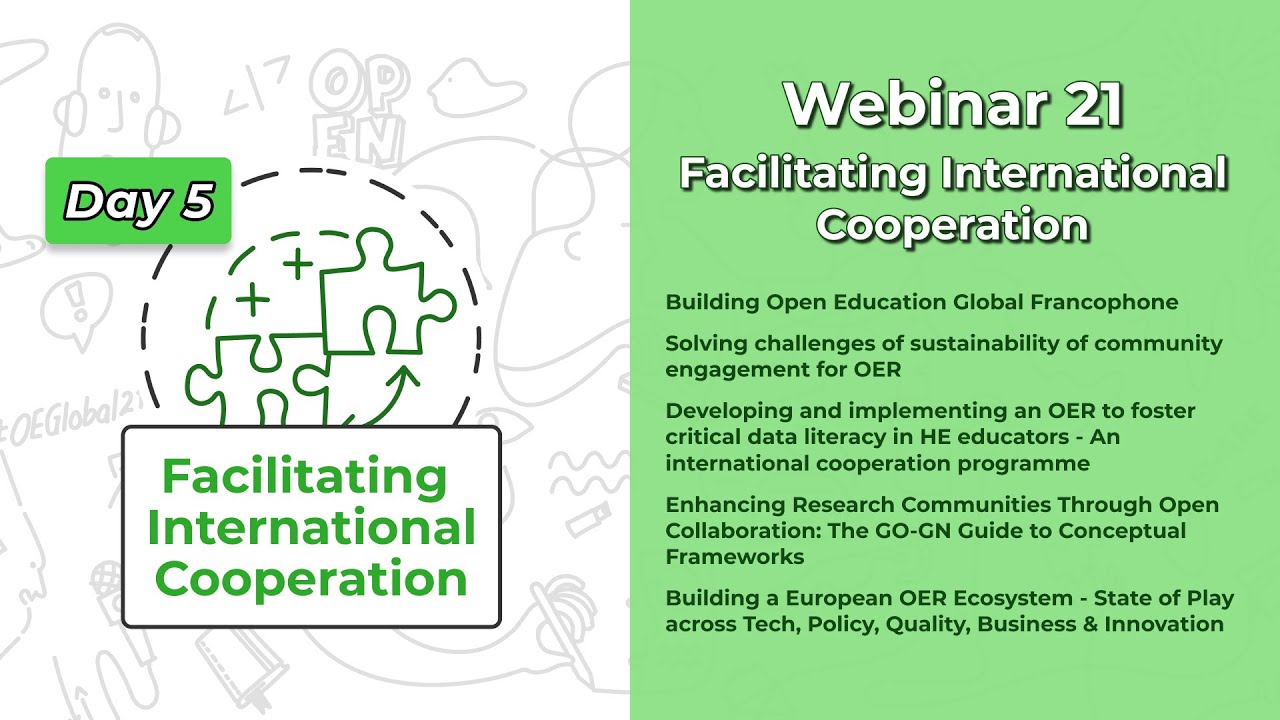Robert Farrow (The Open University)
Enhancing Research Communities Through Open Collaboration: The GO-GN Guide to Conceptual Frameworks
Research plays a key role in our understanding of open education, and is highlighted in the Recommendation on Open Educational Resources (OER) (UNESCO, 2019) as essential for describing the impact of open education; building awareness among key stakeholders; enhancing quality; and forming connections and communities.
The Global OER Graduate Network (GO-GN) is a network of PhD candidates and experts around the world whose research projects include a focus on open education. The Network has more than 300 global members who form a community of practice and support. GO-GN is currently funded through the OER programme of The William and Flora Hewlett Foundation and administered by the Open Education Research Hub from the Institute of Educational Technology at The Open University, UK.
One central aim for the Network is supporting research in the emergent area of open education, and our researchers are encouraged to explore openness as a research vector. The resources produced by the Network reflect this. Last year, GO-GN produced a well-received guide to Research Methods in Open Education (Farrow et al., 2020) which was recognised as a winner in the Open Education Awards for Excellence.
In 2021 GO-GN publishes a companion volume. The GO-GN Guide to Conceptual Frameworks (Farrow et al., 2021) again combines an accessible narrative and visual style with real-life insights gleaned from practising researchers who are using these theories, concepts and models in cutting edge work. Research
This presentation will provide an overview of the new guide and the open, collaborative production process, emphasizing practical strategies for completing research projects. It will be of interest to anyone who conducts research and/or forms policy in the open education space, but particularly for doctoral level researchers.
References
Farrow, R., Iniesto, F., Weller, M., Pitt., R., Algers, A., Baas, M., Bozkurt, A., Czerwonogora, A., Cox., G., Elias, T., Essmiller, K., Funk, J., Nagashima, T., Rabin, E., Rets, I., Spica, E., Vladimirschi, V. & Witthaus, G. (2021). The GO-GN Guide to Conceptual Frameworks. Open Education Research Hub. The Open University, UK. CC-BY 4.0. http://go-gn.net/gogn_outputs/conceptual-frameworks/
Farrow, R., Iniesto, F., Weller, M. & Pitt., R. (2020). The GO-GN Research Methods Handbook. Open Education Research Hub. The Open University, UK. CC-BY 4.0. http://go-gn.net/gogn_outputs/research-methods-handbook/
Kivunja, C. (2018). Distinguishing between Theory, Theoretical Framework, and Conceptual Framework: A Systematic Review of Lessons from the Field. International Journal of Higher Education 7(6). https://doi.org/10.5430/ijhe.v7n6p44
O’Sullivan, P. & Uijtdehaage, S. (2013). Example Conceptual Frameworks: To Guide Educational Scholarship. Teaching Academy of the Consortium of Western Regional Colleges of Veterinary Medicine. https://medicine.utah.edu/faculty-dev/programs/academy-med-education/files/symposium_2015_powerpoints/conceptual-framework-booklet-how-succeed.pdf
Passey, D. (2020). Theories, theoretical and conceptual frameworks, models and constructs: Limiting research outcomes through misconceptions and misunderstandings. Studies in Technology Enhanced Learning 1(1). https://assets.pubpub.org/bcha1jdt/21595481330398.pdf
UNESCO (2019). Recommendation on Open Educational Resources (OER). http://portal.unesco.org/en/ev.php-URL_ID=49556&URL_DO=DO_TOPIC&URL_SECTION=201.html
Extended abstract: OE_Global_2021_paper_84.pdf 📄
Webinar Information
This presentation is part of Webinar 21 Facilitating international cooperation taking place in your local time → .
Webinar Access (registered conference participants only):
![]()
![]() Go to Webinar 21
Go to Webinar 21
UNESCO OER Action Area: Facilitating international cooperation
Language: EnglishSee the other presentations that take place in this webinar.
Presentation Recording
Participate
Before the webinar the authors will be asked to reply below with links to their presentation materials, related videos, and other relevant links, as well as prompts for discussion here.
For anyone that missed the live session, an archive will be posted here as soon as possible.
Conference participants are urged also to reply below with questions, comments for the presenters or to share related resources.
